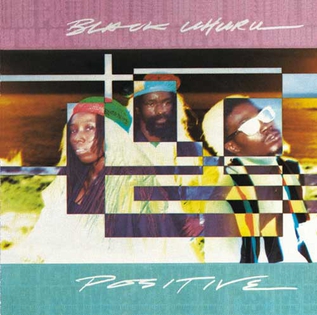
Dub poetry is a form of performance poetry of Jamaican origin, which evolved out of dub music in Kingston, Jamaica, in the 1970s, as well as in London, England, and Toronto, Canada, cities which have large populations of Caribbean immigrants. The term "Dub Poetry" was coined by Dub artist Linton Kwesi Johnson in 1976, and further popularized by artist Oku Onoura, which consists of spoken word over reggae rhythms, originally found on the backing or "version" side of a 12 or 7 inch vinyl record.
Alta Moda was a Canadian funk rock band formed in 1979 in Toronto. It originally consisted of singer Molly Johnson and guitarist Norman Orenstein. Drummer Steven Gelineau and bassist Etric Lyons were added in 1982 and 1983 respectively.

Lillian Allen is a Canadian dub poet, writer and Juno Award winner.
Oku Nagba Ozala Onuora, known as the "father of Jamaican dub poetry" is a Jamaican dub poet and performer.
Chalk Circle was a Canadian alternative rock band formed in 1982 in Newcastle, Ontario. The band originally consisted of lead singer and guitarist Chris Tait, bassist Brad Hopkins, keyboardist Tad Winklarz and drummer Derrick Murphy.

The Thin Red Line is the debut album by Canadian band Glass Tiger. It was released by Manhattan Records in Canada on February 17, 1986.
King Apparatus was a Canadian third wave ska band, active in the early 1990s. Formed in 1987 in London, Ontario and later based in Toronto, the band's lineup varied over its lifetime, including vocalist Chris Murray, guitarists Sam Tallo, Paul Ruston, J. C. Orr and Paul McCulloch, bassist Mitch Girio, organists Mark LeBourdais and Aleks Dmitrovic, conga player Greg Clancy, saxophonist Bruno Hedman, and drummers Brian Christopher, Dave Kennedy and Mike Southern. Their style was strongly influenced by late 1970s 2-Tone ska, although it introduced a heavier guitar attack than traditional ska.

Caribbean music in Canada has existed since the early 1920s, becoming increasingly prominent after the 1960s as Caribbean immigration to Canada increased. Anglo-Caribbean genres such as reggae, soca and calypso are especially prominent in English Canada, while French Caribbean genres such as cadence-lypso, zouk and konpa are more prominent in Quebec.

Don't Just Stand There is the second album by the Canadian band Haywire. It was released 1987 via Attic Records. "Dance Desire", a hit in Canada, was released as a single. The album sold more than 100,000 copies by the end of 1987.
Messenjah is a Canadian-based reggae group that flourished to become one of the most successful and popular reggae groups in the history of Canadian music.

Liberty Silver is a Canadian singer, based in Toronto, Ontario. Her music draws inspiration from diverse genres, ranging from R&B, Jazz, Pop, Gospel, Reggae to Rock.
Andru Branch is a Canadian reggae musician. He is the lead singer-songwriter of the reggae band Andru Branch & Halfway Tree. He was nominated for a Juno Award for his debut 1998 album What If I Told You.
William Taylor Bryans was a Canadian percussionist, songwriter, music producer and DJ, known as one of the founders of The Parachute Club, among other accomplishments in music. As a producer, he worked on projects for artists as diverse as Dutch Mason, Raffi, Lillian Allen and the Downchild Blues Band. He was born in Montreal, but spent most of his adult life in Toronto, and was particularly supportive of world music as both a promoter and publicist, focusing on bringing Caribbean, Cuban and Latin American music to a wider audience.
Punjabi by Nature was a seven piece bhangra band founded in Toronto in 1993. They were nominated for a Juno Award for Best Global Album at the Juno Awards of 1996, for their album Jmpn For Joy.
Mikey Dangerous is a Jamaican/Canadian reggae artist. Dangerous was presented with a Juno Award for best Reggae Recording by the Canadian Academy of Recording Arts and Sciences for his single "Don’t Go Pretending".
Erroll Starr Francis is a Canadian rhythm and blues singer. He is most noted for winning the Juno Award for R&B/Soul Recording of the Year in 1989 for his single "Angel".
Clifton Joseph is a Canadian dub poet. He is most noted for his 1989 album Oral/Trans/Missions, from which the song "Chuckie Prophesy" was a shortlisted Juno Award finalist for Best Reggae Recording at the Juno Awards of 1990.

Positive is a studio album by the Jamaican reggae group Black Uhuru, released in 1987. A dub album, Positive Dub, was released the same year. Positive was the final album with vocalist Delroy "Junior" Reid.

Human Soul is an album by the English musician Graham Parker.
"Your Daddy Don't Know (What Your Mama's Gonna Do Tonight)" is a song by the Canadian rock band Toronto, from their 1982 album Get It on Credit.







